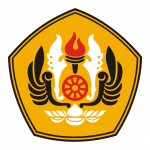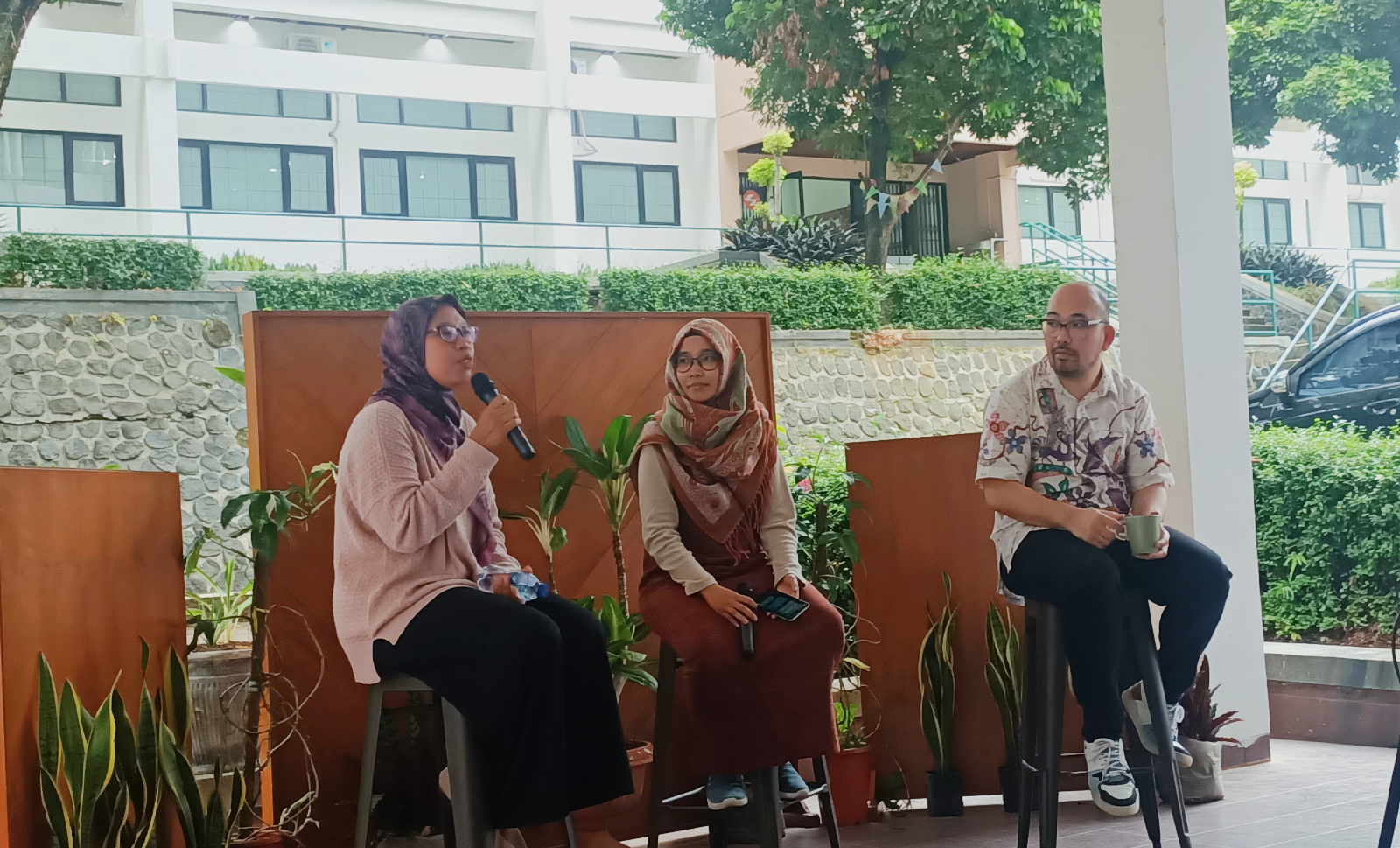Ngopi Sore Episode 3: The Importance of Utilizing Relationships and Personal Branding to Open Collaboration Opportunities
Author Putri Alifia ZH, Reynaldi R
On Tuesday, May 28, 2024, Ngopi Sore Episode 3 took place in a hybrid format, held in person at the Selasar Building 3 of the Faculty of Psychology Unpad and online via Zoom. This event was organized by the Center for Innovation and Psychological Research (PSIPP) from 3:30 PM to 4:37 PM and was attended by lecturers from the Faculty of Psychology, Universitas Padjadjaran.
Ngopi Sore is a semi-formal monthly gathering for lecturers. As the name suggests, the concept of the event is a talk show in the afternoon while enjoying refreshments. This third episode of Ngopi Sore was held with the theme “Building Collaboration with Parties Outside the Faculty of Psychology, Unpad.” The topic was presented by a host, Miryam Wedyaswari, M.Psi., Psychologist, and two main speakers, Fredrick Dermawan Purba, M.Psi., Ph.D., Psychologist, commonly known as Bang Jeki, and Dr. Fitri Ariyanti Abidin, M.Psi., Psychologist, known as Mba Fitri.
The event began with an opening by the host, followed by a presentation on the current demands of including collaborators in research proposals at Unpad by Dr. Hj. Ratna Jatnika, M.T.. The main discussion was then led by the two speakers, guided by the host.
In general, the discussion covered several topics: how to find collaborators by leveraging relationships and forming consortia, tips for collaborating with collaborators, and unique experiences of the speakers while collaborating. While enjoying snacks and drinks provided, the attending lecturers listened attentively to the discussion.
Bang Jeki started the discussion by emphasizing that nowadays, cross-institutional, cross-departmental, or cross-country research is more valued and impactful. Therefore, it is important to find collaborators to work with on research projects. One form of collaboration is joining or forming a consortium, a group of individuals or institutions with common interests and goals. Consortia can be either formal or informal collaborations. Relationships play a crucial role in building a consortium with suitable collaborators.
From the two speakers present, three key points were highlighted on how relationships can be utilized to find collaborators: relationships with mentors during and after completing a Ph.D. program, relationships from scientific conferences, and relationships with community organizations.
Bang Jeki shared his experience and knowledge on leveraging relationships with mentors and those from scientific conferences. Relationships with mentors can connect researchers with other researchers with similar interests. Relationships from scientific conferences can be established with presenters or participants who ask questions.
Meanwhile, Mba Fitri emphasized the importance of leveraging relationships with community organizations. For instance, by knowing one member of a community, a researcher may be able to collaborate with the entire community through that acquaintance. Relationships with community organizations, especially in Indonesia, can provide a large sample size for research, ease in finding assistants, and lower costs. Additionally, she mentioned that collaborative research offers researchers the opportunity to apply their knowledge, learn new things from collaborators, and benefit the community directly.
From these three points, Bang Jeki also mentioned that another important aspect is having the courage to approach potential collaborators, as highlighted in the following quote, “So, the key is the courage to approach.”
Besides having the courage to approach, Bang Jeki added that researchers should also be bold in presenting themselves as experts in a specific field or enhancing their personal branding. With personal branding, there is a possibility that the audience will remember the researcher and associate them with keywords of expertise, increasing the chance of collaboration invitations.
After discussing tips for finding collaborators, the host asked the speakers about interesting experiences they had while collaborating.
Towards the end of the event, the host concluded the session. Afterward, the lecturers continued to chat with each other while enjoying the refreshments provided. With the organization of this event, it is hoped that the challenges in finding collaborators will be easier to overcome in the future, enabling high-quality research to be conducted successfully.
 Universitas Padjadjaran
Universitas Padjadjaran